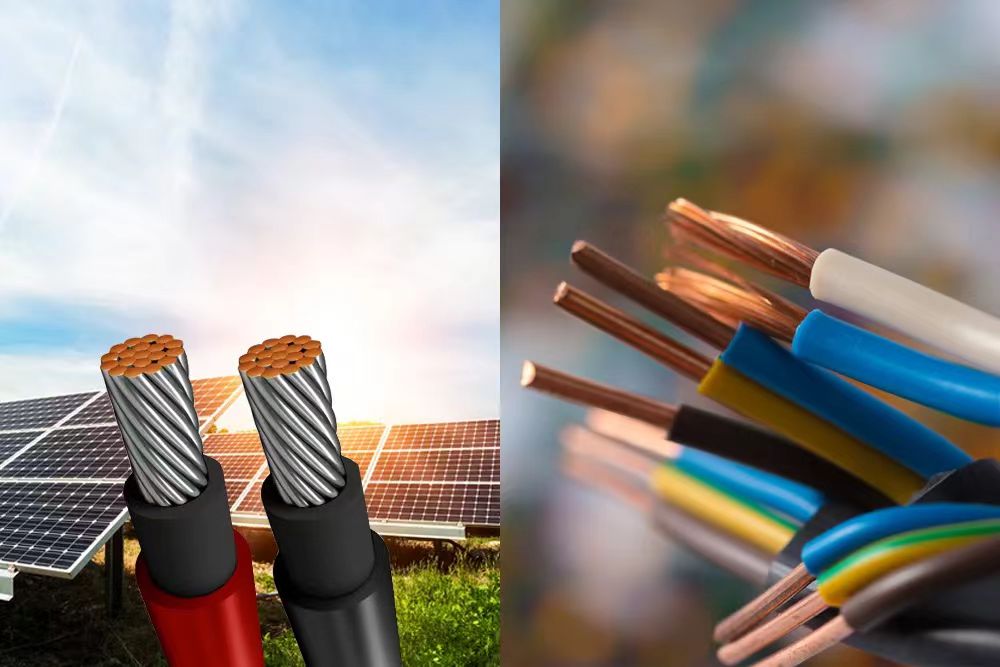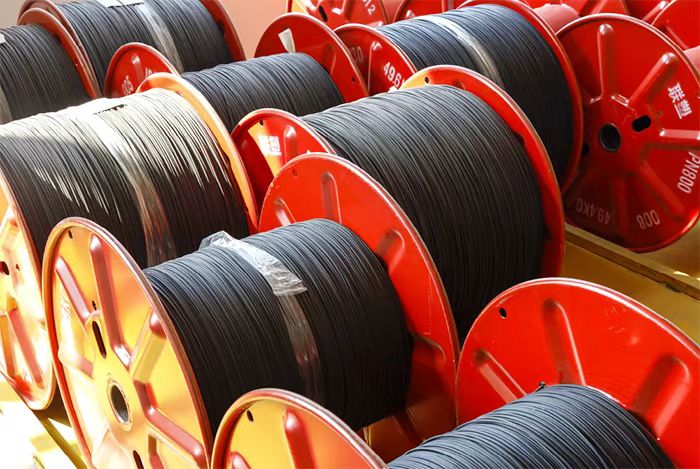Everything You Need To Know About Solar Wire For Solar Power Systems
 Aug 27,2024
Aug 27,2024

 Suke
Suke
Solar wire is a very important but often overlooked part of any solar power system. Most solar power kits or packages either do not come with the solar wire at all or only include an eliminated amount that leaves it up to the installer or the homeowner to figure out what they need for their particular installation. They do this because every installation is unique and they want to keep the package price low. So they don’t want to send you too much solar wire that you won’t need. There are three main things in my opinion that you need to understand about solar wire to make an educated purchase decision for your solar power system.

Number one is that there are many different types of solar wire and this can get confusing fast. The solar wire differs in conductor, material insulation, and flexibility for the most part. By far, the most popular and widely used conductor for solar applications is pure copper. The absolute best conductor is silver, but it’s cost-prohibitive to use for solar applications. Aluminum is another option that’s quite a bit cheaper than copper but doesn’t conduct electricity nearly as well and will result in more lost energy through resistance. The solar wire can come in various types of insulation that vary in their protective properties. Some work better in high temperatures, high moisture, high UV exposure, or when exposed to fire than others for indoor solar wiring such as in a shed garage or attic. I would recommend using THHN wire. For wire exposed to the elements such as underneath your solar panels, you can choose USE2 or RHW2 Wire. But if you want the best there is a wire that’s designed specifically for solar called solar wire that is the best for your system. This is especially true for off-grid systems as solar wire is the best for underground systems. Finally, solar wire can either be solid core construction or stranded which is where the wire gets its flexibility from since current tends to flow on the outside of a conductor. Stranded wire offers more surface area for flow and thus delivers better conductivity than solid. Stranded is also much easier to use since it’s a lot more flexible. So in most cases, it’s best to use stranded solar wire for solar power systems.
The second thing that you need to understand is that the gauge or thickness and length of the solar wire will determine how much current can be safely carried. Without getting into too much of an explanation the longer and skinnier the solar wire is the more resistance it will have to conducting current. And if the resistance gets too high that will lead to a lot of energy lost or worse yet an electrical fire. The good news is when you’re making this important decision most of the time you already know the length of the solar wire that you need and you’re also usually going to know the current that you need to be able to carry on this wire so you probably already have two or the three variables set in stone that just leaves you with choosing the appropriate gauge of wire to carry that amount of current over that specific distance. Luckily some numerous online calculators and charts will help you make the right choice.

The third and final thing that you need to understand about solar wire is my suggestion for the thickest solar wire that you can afford that will physically work with your components. Now most of you have seen the cost of solar wire so let me go ahead and explain why I say this. Most of us don’t want to spend a lot of money on wire for our solar panel system. We’re already making a huge investment in solar panels inverters charge controllers batteries and or mounting equipment. So this might be an area where we’re tempted to cut corners I certainly have been tempted to do that in the past. But I can tell you from painful experience that buying solar wire twice or there times is much worse than buying the right solar wire the first time. and this isn’t an area of your system that you want to go cheap on. Your solar investment is at risk and your health is in danger if you make the wrong choice and start a fire. I promise you that you will never regret having excess carrying capacity in your wires. Now you may not ever add more panels to your system but you may have to rewire some things at some point and a bigger solar wire will give you more leeway and flexibility.
I could give numerous examples of scenarios where your needs or your system might change in the future. And I guarantee you that if that happens you’re not going to want to throw away hundreds or thousands of dollars of solar wire because it’s now too small and inadequate. Hopefully, that helps you along the path of making the right decision on solar wire for your solar panel system.

 Home
Home What Is The Difference Between Power Cable and Instrument Cable?
What Is The Difference Between Power Cable and Instrument Cable?  You May Also Like
You May Also Like

 Tel
Tel
 Email
Email
 Address
Address













